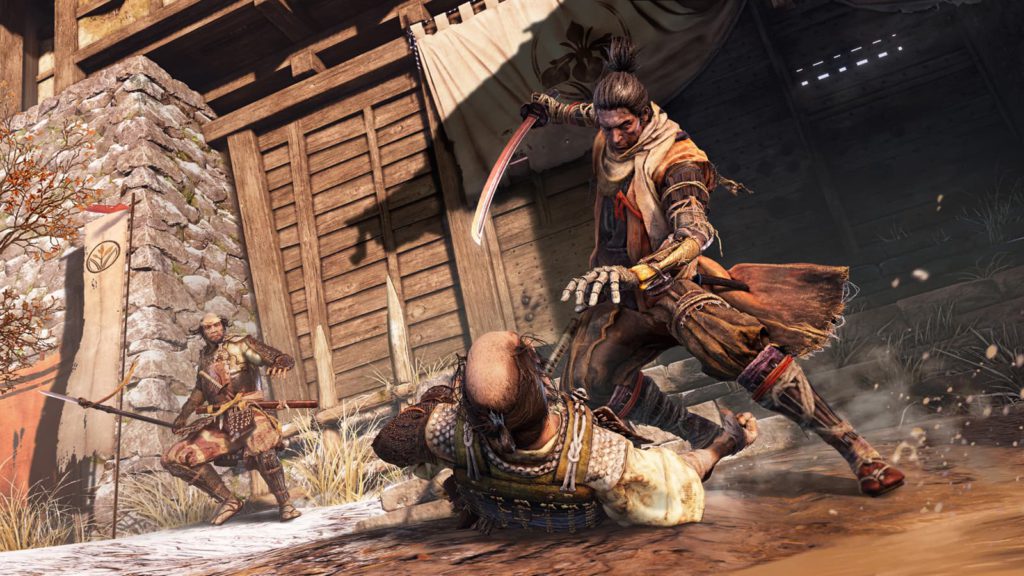It’s hard to get the point across with a single game, even with two what you are trying to say can get lost in everything that you are trying to do. The third game is what gives your gaming audience the time to digest what you want them to see which in this situation it is the kind of games you want to make. With the release of Sekiro: Shadows Die Twice we can finally see what kind of games that we can continue to expect out of From Software, historically inspired, dark, and difficult RPGs.
First, let’s look at what exactly the first “Souls” games were and how they laid the foundation for what this game pattern that I’m talking about. Demon Souls is a medieval inspired RPG that pits you against, well obviously, demons of all varying shapes and sizes that make staying alive more than a little bit of a challenge which you’ll notice is a bit of a theme with this story. When it came out, it was innovative with its approach to combat and inventory, with a unique spin on the traditional “Stand your ground and fight” style of medieval combat it instead focused on a mix of dodging, blocking and parrying to take down the demons standing in your way.

Now the Dark Souls trilogy mostly followed that same path carved out by its spiritual predecessor and kept much of what made the game so new and innovative and refined it into a beloved franchise with in-depth lore and a rabid fanbase. Mainly the trilogy focused on perfecting what they had without really taking things too far outside the box they had built, they had what they wanted but just made it much more fine-tuned, improving the controls, adding more versatility to the gameplay, and so forth and so on. Don’t get me wrong though, I absolutely LOVED Dark Souls, everything from the lore, to the gameplay, to the bosses (well that’s kind of a love/hate relationship) and I consider them near and dear to my heart and what each game did was in its own way unique while improving the core gameplay of the franchise. However, where things get the most interesting is Bloodborne.
Now for anyone that only knew From Software only from Demon Souls and Dark Souls the announcement of Bloodborne came as a bit of a shock to many fans because it was so different from the rest but yet so similar. For the uninitiated, Bloodborne is an RPG based on a twisted version of Victorian-era London where a mysterious group of Hunters do what they do best and hunter down the dangerous victims of a mysterious plague that turns them into vicious Beasts all while trying not to fall victim to the disease themselves or the madness it brings with it. The game plays in much the same style as Dark Souls but with a few big difference, the customization is much more limited with having certain weapons for each hand and a much more limited selection of gear to choose from, oh and most jarringly, no shields. While this may seem like only minor differences to many, fans of the Souls series know that these changes shake the very foundation of the franchise they know and love. It can’t be stressed how vital shielding is in Dark Souls and so Bloodborne having a lack of it worried many as it put a much greater emphasis on the ability to parry and dodge attacks, but it has quickly become a game on par with its sister series and a game that is already looked back on fondly.

Now where all of this ends up is Sekiro which sort of finalizes precisely what these games have been setting up, a much more focused experience centered less around telling the players story and more around telling the story of someone in their world. Sekiro even diversifies the way that players interact with their environment with more honest to goodness stealth and even grappling points to speed up the walking sections that the previous games were so bad about doing. What From Software is doing is creating a more diverse environment for the player while making the player character less diverse in a beautiful way that allows them to feel more connected to their character. This is what they’ve always wanted, their lore filled worlds have always eluded to the fact that they want to tell stories, deep and intricate stories that they require more direction on their behalf then Dark Souls or Bloodborne could ever allow them to, which is why they made this change or maybe they just realized it now but this is the future they’re heading for. Although in my humble opinion, it’s all for the better.







Comments are closed.